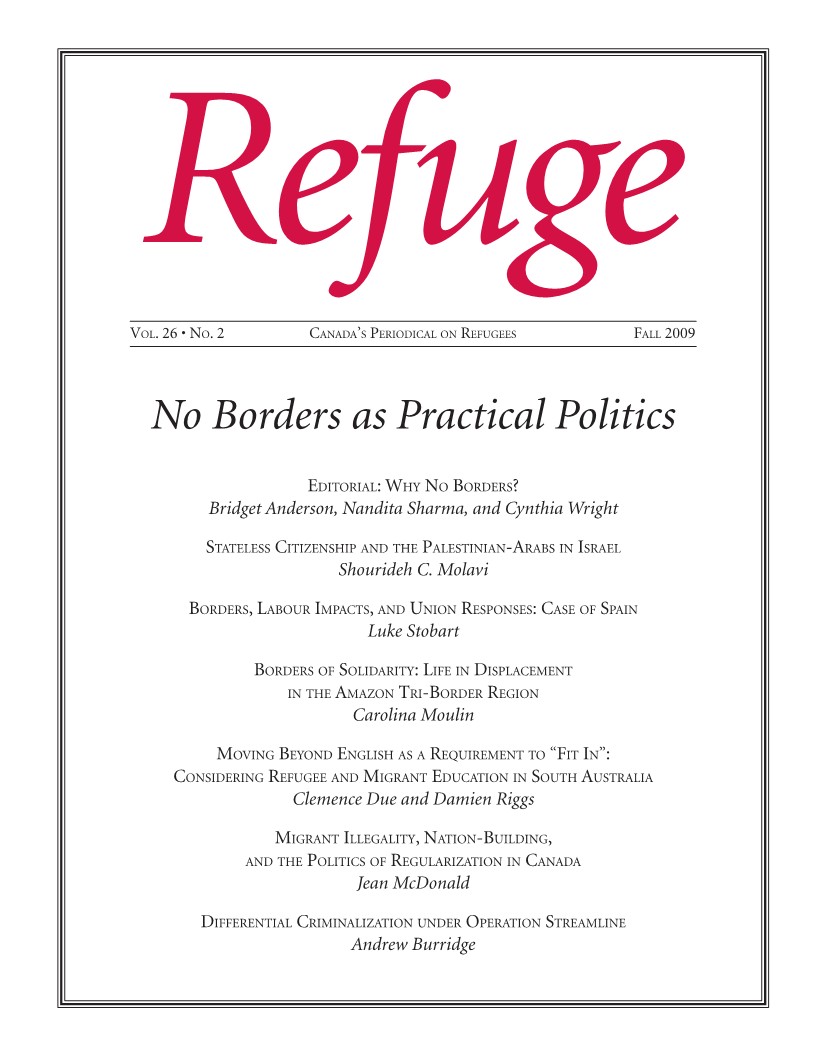Negotiating Rights: The Politics of Local Integration
DOI:
https://doi.org/10.25071/1920-7336.32081Keywords:
Africa, refugees, local integration, refugee protection, anti-warehousing campaign, politics, case studiesAbstract
Advocacy campaigns against the “warehousing” of refugees in camps suggest the facilitation of local integration as a preferred policy option for states, international organizations, and non-governmental organizations. This paper argues that the institutions, assumptions, and habits that the international refugee protection system has developed over the past forty years hinder our understanding of local integration as a fundamentally political and refugee- and host-driven process. The paper uses African case studies to show how local integration is part of broader processes of local politics. It proposes alternatives to three key assumptions of conventional policy-oriented approaches to local integration: (1) that local integration is a form of local politics rather than institutionalizable process for an exceptional category of people (e.g., refugees); (2) that local integration is negotiated by refugees based on a range of legitimacy claims and forms of exchange rather than primarily based on “refugee rights”-related claims; and (3) that local integration is enabled by hosts for a variety of reasons rather than mainly for reasons related to the idea of “refugee protection.”
Metrics
Downloads
Published
How to Cite
Issue
Section
License
Copyright (c) 2011 Tara Polzer

This work is licensed under a Creative Commons Attribution-NonCommercial 4.0 International License.
Refuge authors retain the copyright over their work, and license it to the general public under the Creative Commons Attribution-Non Commercial License International (CC BY-NC 4.0). This license allows for non-commercial use, reproduction and adaption of the material in any medium or format, with proper attribution. For general information on Creative Commons licences, visit the Creative Commons site. For the CC BY-NC 4.0 license, review the human readable summary.







